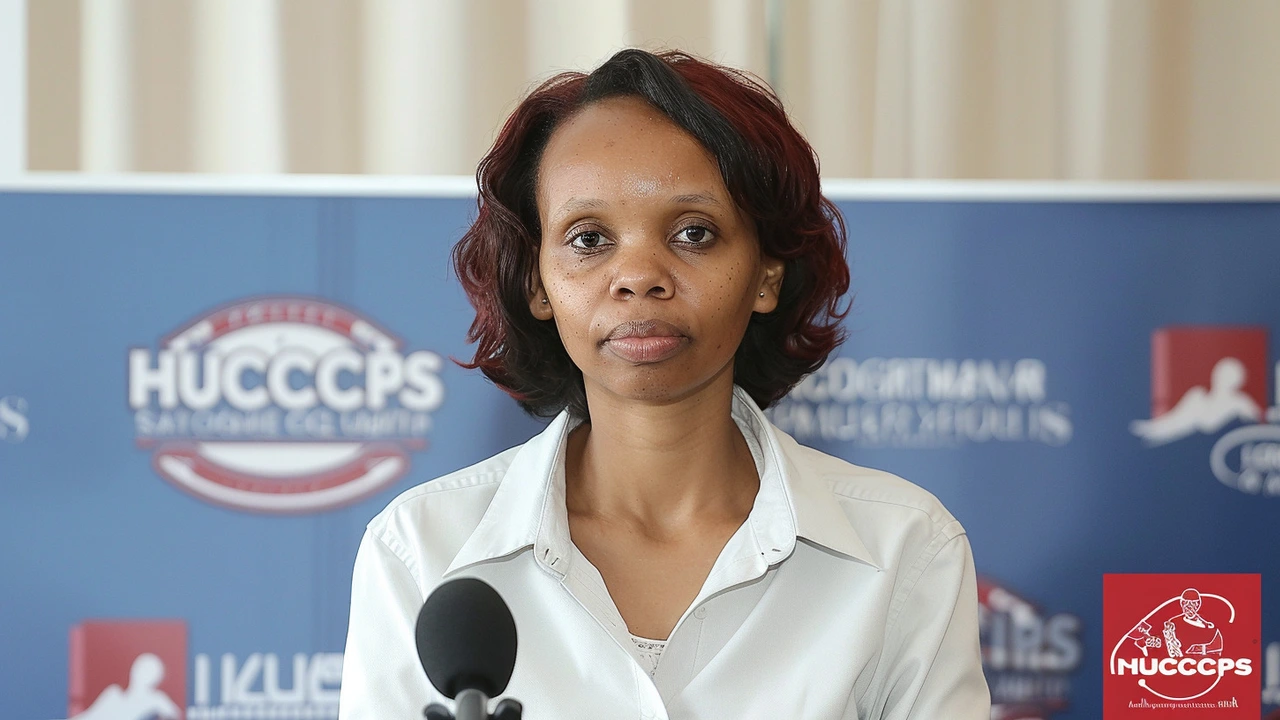KUCCPS Announces 2024 University and TVET Placement Results for KCSE Graduates: Insights and Trends
The Kenya Universities and Colleges Placement Service (KUCCPS) has officially released the placement results for the 2024 academic year, targeting students who sat for the 2023 Kenya Certificate of Secondary Education (KCSE). This announcement, eagerly awaited by thousands of students and their families, marks a pivotal moment in the academic journey of these young individuals. According to the comprehensive report, a total of 134,743 students have been placed in public universities across the nation, while an additional 18,000 learners have secured spots in private universities to pursue various degree programs.
Gender Disparities in Course Selections
One of the notable highlights from the KUCCPS report is the discernible gender disparity in course selections. KUCCPS CEO Agnes Wahome pointed out an intriguing trend where more male students who sat the 2023 KCSE opted for degree courses at universities. In contrast, their female counterparts showed a marked preference for Technical and Vocational Education and Training (TVET) institutions. This shift emphasizes a growing recognition of the practical value and career readiness that TVET programs offer, particularly among female students.
In terms of numbers, the gender divide also reflects broader societal and educational trends within Kenya. It's possible that the push for STEM (Science, Technology, Engineering, and Mathematics) careers, which has been a focal point for many educational policies and programs, has resonated more with male students. Meanwhile, the current socio-economic landscape, which tends to encourage quick employability and hands-on skills, may have driven female students towards TVET courses that promise immediate job opportunities.
Application and Placement Statistics
According to the report, a remarkable 85 percent of the 2023 KCSE candidates who scored a C+ and above made formal applications through the KUCCPS system. Out of these, 76.2 percent chose degree programs, indicating a sustained interest in higher education and professional careers. The remaining percentage opted for diploma programs, underscoring the ongoing appeal of middle-level colleges and specialized training institutions.
Among the array of available degree programs, the Bachelor of Education emerged as the most sought-after course. This persistent demand for teaching courses suggests a continuous need for qualified educators within Kenya's expanding education sector. It also hints at an ongoing societal regard for teaching as a respected and stable profession.
Checking Placement Results
The process for students to check their placement results has been streamlined to ensure accessibility and convenience. Candidates can log into their KUCCPS student portal, where they need to enter their KCSE index number, the year they sat for the exam, and their password, which can either be their birth certificate number or KCPE index number. This free and internet-based process is designed to make the system user-friendly and efficient, reducing the stress and anxieties often associated with such pivotal educational milestones.
The Role of KUCCPS in Kenya's Education Ecosystem
The Kenya Universities and Colleges Placement Service has played a critical role in shaping the education landscape of the country. By providing a structured and transparent platform for university and college placement, KUCCPS ensures that all eligible students have a fair chance to pursue their desired courses. This system also helps in managing and distributing educational resources efficiently, which is crucial in a country with a large and diverse student population.
Moreover, KUCCPS's efforts in aligning students' placements with the country's development goals cannot be overemphasized. By facilitating the placement of students in not just traditional university degree programs but also in technical and vocational courses, KUCCPS supports the nation's broader objective of fostering a skilled and versatile workforce. This dual approach is essential for addressing the dynamic needs of Kenya's economy, which requires both theoretical knowledge and practical skills.
Future Implications of Current Trends
The trends observed in this year's placement results may have significant implications for the future of education and workforce development in Kenya. The increased inclination towards TVET courses among female students could lead to a more gender-balanced presence in technical fields, traditionally dominated by men. Additionally, the strong interest in education degrees highlights the growing emphasis on improving the quality of education through well-trained teachers.
As Kenya continues to evolve and develop, the educational preferences of its youth will play a crucial role in determining the country's socio-economic trajectory. The choices made by the KCSE students provide a snapshot of future trends that could shape various industries and sectors.
Conclusion
The release of the 2024 placement results by KUCCPS offers critical insights into the aspirations and trends among Kenya's youth. The data highlights the gender-specific choices and the overall preferences for degree and diploma programs, reflecting broader societal and economic shifts. By effectively managing the placement process, KUCCPS continues to be a cornerstone of Kenya's educational system, driving the country towards a future where every student has the opportunity to achieve their fullest potential.








yatharth chandrakar
May 21, 2024 AT 23:26Congrats to everyone who got placed! Remember that your path is just beginning; keep building skills alongside your degree. If you can pair studies with internships, the job market will notice you.
Vrushali Prabhu
May 22, 2024 AT 07:46i think its cool how more girls are diving into tvet, they’ll bring fresh perspective to trades.
parlan caem
May 22, 2024 AT 16:06The report glosses over the funding gaps in TVET institutions.
Mayur Karanjkar
May 23, 2024 AT 00:26Analyzing placement data reveals a gendered stratification in program selection, indicative of broader socio-economic vectors. This pattern aligns with existing labor market dynamics.
Sara Khan M
May 23, 2024 AT 08:46Loved seeing the stats, especially the surge in teaching degrees 🙌.
shubham ingale
May 23, 2024 AT 17:06Great news for students staying focused on their goals keep pushing forward 😊
Ajay Ram
May 24, 2024 AT 01:26The 2024 KUCCPS placement report is more than a list of names; it is a mirror reflecting Kenya’s evolving educational aspirations.
When we examine the gender distribution, the surge of female students into TVET programs signals a shift toward practical skill acquisition.
Historically, women have been underrepresented in technical fields, so this trend could herald a more balanced workforce.
Equally important is the continued popularity of the Bachelor of Education, which suggests society still values the teaching profession.
From an economic perspective, expanding the pool of technically trained graduates supports industrial growth and reduces reliance on imported expertise.
Moreover, the high application rate-85 percent of eligible candidates-demonstrates confidence in the KUCCPS system.
It also indicates that students recognize the strategic advantage of securing formal placements rather than navigating the process informally.
The data reveal that while male students lean toward university degrees, many still opt for diploma pathways, reflecting diverse career strategies.
These choices are likely influenced by regional employment opportunities and the perceived return on investment of each qualification.
Policymakers should note that aligning TVET funding with the growing female enrollment could amplify the impact of this shift.
Investments in modern workshop facilities and industry partnerships will ensure that graduates are job‑ready from day one.
In parallel, universities must continue to strengthen teacher‑training curricula to meet the nation’s educational demands.
Stakeholders, including private sector employers, could benefit from collaborative apprenticeship models that bridge academia and industry.
Such models would not only enhance practical learning but also provide employers with a pipeline of skilled labor.
Looking ahead, monitoring the career trajectories of these cohorts will be essential for refining placement policies.
Ultimately, the 2024 results offer a hopeful glimpse into a future where Kenya’s youth are equipped both with knowledge and hands‑on competence.
Dr Nimit Shah
May 24, 2024 AT 07:00While the long‑form analysis is thorough, let’s remember that Kenya’s heritage thrives on practical skill transmission, and the numbers should inspire national pride rather than endless debate.
Ketan Shah
May 24, 2024 AT 15:20From a policy standpoint, the alignment of TVET placements with national development goals showcases strategic foresight.
Aryan Pawar
May 24, 2024 AT 23:40Sounds like a win win for the country we need more of these placements to boost the economy
Shritam Mohanty
May 25, 2024 AT 05:13But remember the data could be skewed by hidden agendas in the ministry, watch out for the narrative they push.
Anuj Panchal
May 25, 2024 AT 13:33Further inquiry into the longitudinal outcomes of these placements could inform evidence‑based adjustments to the allocation algorithm.